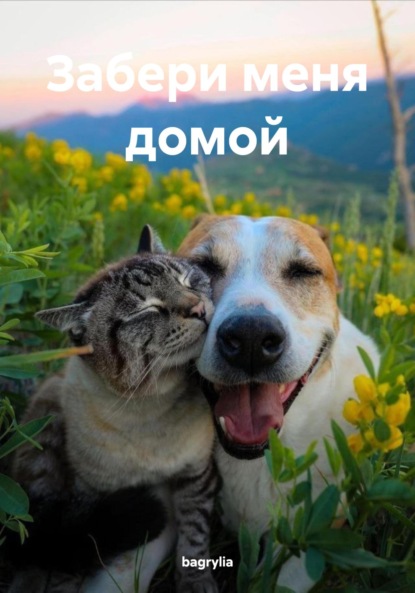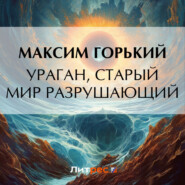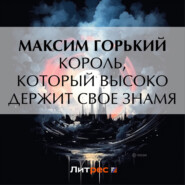По всем вопросам обращайтесь на: info@litportal.ru
(©) 2003-2024.
✖
Mother
Настройки чтения
Размер шрифта
Высота строк
Поля
"Now, mother, why this?" cried Pavel resentfully. "What for?"
Drying her face with her apron, she answered quietly:
"I don't know, but it is the way I feel."
He paced up and down the room, then halting before her, said:
"Are you afraid?"
"I am afraid," she acknowledged. "Those people from the city – who knows them?"
He bent down to look in her face, and said in an offended tone, and, it seemed to her, angrily, like his father:
"This fear is what is the ruin of us all. And some dominate us; they take advantage of our fear and frighten us still more. Mark this: as long as people are afraid, they will rot like the birches in the marsh. We must grow bold; it is time!
"It's all the same," he said, as he turned from her; "they'll meet in my house, anyway."
"Don't be angry with me!" the mother begged sadly. "How can I help being afraid? All my life I have lived in fear!"
"Forgive me!" was his gentler reply, "but I cannot do otherwise," and he walked away.
For three days her heart was in a tremble, sinking in fright each time she remembered that strange people were soon to come to her house. She could not picture them to herself, but it seemed to her they were terrible people. It was they who had shown her son the road he was going.
On Saturday night Pavel came from the factory, washed himself, put on clean clothes, and when walking out of the house said to his mother without looking at her:
"When they come, tell them I'll be back soon. Let them wait a while. And please don't be afraid. They are people like all other people."
She sank into her seat almost fainting.
Her son looked at her soberly. "Maybe you'd better go away somewhere," he suggested.
The thought offended her. Shaking her head in dissent, she said:
"No, it's all the same. What for?"
It was the end of November. During the day a dry, fine snow had fallen upon the frozen earth, and now she heard it crunching outside the window under her son's feet as he walked away. A dense crust of darkness settled immovably upon the window panes, and seemed to lie in hostile watch for something. Supporting herself on the bench, the mother sat and waited, looking at the door.
It seemed to her that people were stealthily and watchfully walking about the house in the darkness, stooping and looking about on all sides, strangely attired and silent. There around the house some one was already coming, fumbling with his hands along the wall.
A whistle was heard. It circled around like the notes of a fine chord, sad and melodious, wandered musingly into the wilderness of darkness, and seemed to be searching for something. It came nearer. Suddenly it died away under the window, as if it had entered into the wood of the wall. The noise of feet was heard on the porch. The mother started, and rose with a strained, frightened look in her eyes.
The door opened. At first a head with a big, shaggy hat thrust itself into the room; then a slender, bending body crawled in, straightened itself out, and deliberately raised its right hand.
"Good evening!" said the man, in a thick, bass voice, breathing heavily.
The mother bowed in silence.
"Pavel is not at home yet?"
The stranger leisurely removed his short fur jacket, raised one foot, whipped the snow from his boot with his hat, then did the same with the other foot, flung his hat into a corner, and rocking on his thin legs walked into the room, looking back at the imprints he left on the floor. He approached the table, examined it as if to satisfy himself of its solidity, and finally sat down and, covering his mouth with his hand, yawned. His head was perfectly round and close-cropped, his face shaven except for a thin mustache, the ends of which pointed downward.
After carefully scrutinizing the room with his large, gray, protuberant eyes, he crossed his legs, and, leaning his head over the table, inquired:
"Is this your own house, or do you rent it?"
The mother, sitting opposite him, answered:
"We rent it."
"Not a very fine house," he remarked.
"Pasha will soon be here; wait," said the mother quietly.
"Why, yes, I am waiting," said the man.
His calmness, his deep, sympathetic voice, and the candor and simplicity of his face encouraged the mother. He looked at her openly and kindly, and a merry sparkle played in the depths of his transparent eyes. In the entire angular, stooping figure, with its thin legs, there was something comical, yet winning. He was dressed in a blue shirt, and dark, loose trousers thrust into his boots. She was seized with the desire to ask him who he was, whence he came, and whether he had known her son long. But suddenly he himself put a question, leaning forward with a swing of his whole body.
"Who made that hole in your forehead, mother?"
His question was uttered in a kind voice and with a noticeable smile in his eyes; but the woman was offended by the sally. She pressed her lips together tightly, and after a pause rejoined with cold civility:
"And what business is it of yours, sir?"
With the same swing of his whole body toward her, he said:
"Now, don't get angry! I ask because my foster mother had her head smashed just exactly like yours. It was her man who did it for her once, with a last – he was a shoemaker, you see. She was a washerwoman and he was a shoemaker. It was after she had taken me as her son that she found him somewhere, a drunkard, and married him, to her great misfortune. He beat her – I tell you, my skin almost burst with terror."
The mother felt herself disarmed by his openness. Moreover, it occurred to her that perhaps her son would be displeased with her harsh reply to this odd personage. Smiling guiltily she said:
"I am not angry, but – you see – you asked so very soon. It was my good man, God rest his soul! who treated me to the cut. Are you a Tartar?"
The stranger stretched out his feet, and smiled so broad a smile that the ends of his mustache traveled to the nape of his neck. Then he said seriously:
"Not yet. I'm not a Tartar yet."
"I asked because I rather thought the way you spoke was not exactly Russian," she explained, catching his joke.
"I am better than a Russian, I am!" said the guest laughingly. "I am a Little Russian from the city of Kanyev."
"And have you been here long?"
"I lived in the city about a month, and I came to your factory about a month ago. I found some good people, your son and a few others. I will live here for a while," he said, twirling his mustache.
The man pleased the mother, and, yielding to the impulse to repay him in some way for his kind words about her son, she questioned again:
"Maybe you'd like to have a glass of tea?"
"What! An entertainment all to myself!" he answered, raising his shoulders. "I'll wait for the honor until we are all here."

















